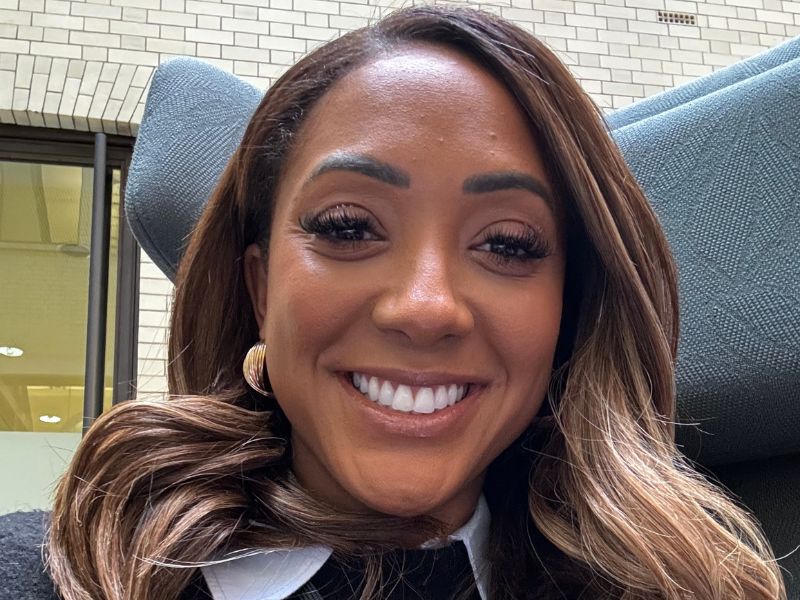 It is widely accepted that gender equality and diversity leads to greater economic success and as Covid-19 places heightened economic pressure on business, it is clear that gender diversity is more essential than ever before.
It is widely accepted that gender equality and diversity leads to greater economic success and as Covid-19 places heightened economic pressure on business, it is clear that gender diversity is more essential than ever before.
And yet significant gender bias continues to exist, both in the workplace and at home.
A New York Times poll found that the division of domestic responsibilities during lockdown has remained as imbalanced as pre-Covid times, with 70% of women completely or mostly responsible for housework, 66% completely or mostly responsible for childcare and 80% spending more time homeschooling their children than their male partners. This is in addition to the demands of their professional lives and the wider mental, emotional and financial impact of the pandemic.
So it seems that, whether we are working from home, on furlough, or carrying the greater likelihood of redundancy, women are carrying the heaviest burden during this pandemic.
According to Jennifer Pertiglieri, author of Couples That Work, the crux of the problem lies not necessarily in the division of labour (an immediate challenge) but more fundamentally in the way decisions are taken by couples at critical times in life that determine whether both careers are considered equal and interdependent, or one career takes priority over the other. In most cases the man’s career assumes priority, and many couples sleepwalk through these transitions, reverting to traditional stereotypes to the detriment of the woman’s career. As a result, a woman’s career path is stalled (and sometimes stagnates completely), and men are automatically assumed to be the primary breadwinner, and continue to climb the professional ladder into Board level positions. This perpetuates the inequalities in the workplace, particularly in senior positions, and leads to the age-old issue of turkey’s voting for Christmas – predominantly male Boards of Directors needing to pioneer decisions to reduce their own presence at a senior level.
As a professional HR consultant, I too have noticed these domestic inequalities with redundancy clients I coach. The women I coach are far more likely to be integrating childcare responsibilities into their career plan than men (in fact I haven’t ever coached a man for whom childcare was the primary consideration or trigger for considering a career change or other employment shift). Conversely, I have noticed no difference between men and women when it comes to dealing with the emotional impact of redundancy. Men and women experience very similar grief emotions.
So what can we do to reverse this trend?
There are so many answers to this, but let’s start with some fundamental steps in the right direction.
At an individual level, I encourage clients I coach to think about the macro level decisions being taken as a couple, when looking at how they want to share the responsibilities of work and home. Consciously and proactively thinking ahead to when decisions will need to be taken is critical. From large macro decisions, such as how to treat parental leave, to who will be the primary caregiver, and who will take the phone call from the school or be expected to stay home when the child is ill. Making intentional decisions on these points before they are needed is far more likely to mean the decisions taken in the moment are in support of the macro plan, and make it less likely to unwittingly revert to gender stereotypes.
At an organisational level, as an HR Consultant I also encourage employers to normalise flexible working for men, across all aspects of work, from a more equal approach to shared dependent leave to part-time or flexible working hours. Many men want to take the time but are afraid to stand out from the crowd to do this. It will only be when this flexibility is normalised for both men and women that we will begin to see the shift needed to balance the workplace.
About the author
Gemma Bullivant is an HR Consultant and Coach with over 25 years’ experience in HR and Coaching. She is also a qualified Positive Psychologist, with specific training in Grief, Loss and Change. Gemma offers a range of HR, Coaching and Grief related services, including Bereavement & Change Coaching, Returning to Work during Bereavement Coaching and Redundancy Coaching to empower both men and women to make intentional choices at critical times in their career.
WeAreTheCity covers the latest female centric news stories from around the world, focusing on women in business, careers and current affairs. You can find all the latest gender news here.
Don’t forget, you can also follow us via our social media channels for the latest up-to-date gender news. Click to follow us on Twitter, Facebook, Instagram, and YouTube.








